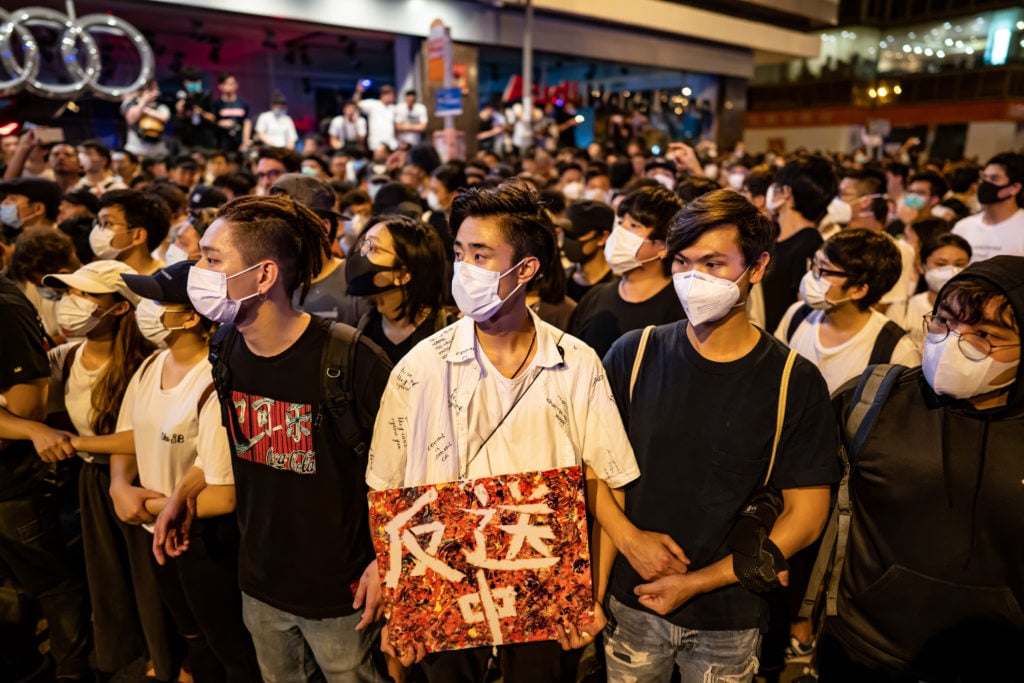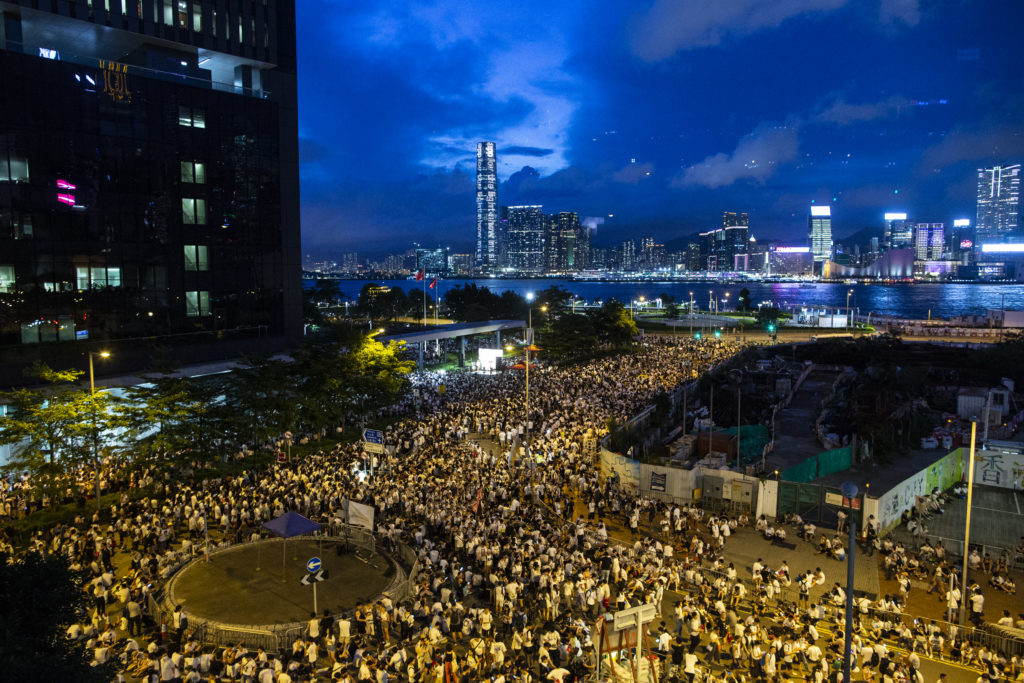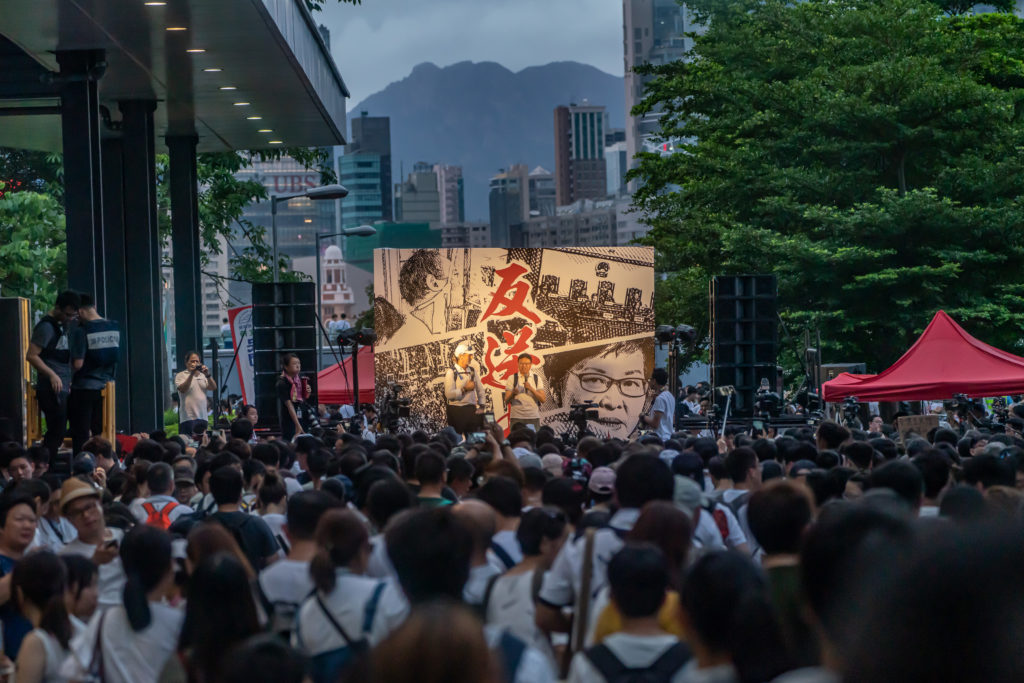Politics
100 Hong Kong Arts Organizations Will Protest a New Extradition Bill That Threatens the City’s Independence
The Hong Kong Artists Union is calling for a June 12 strike.

The Hong Kong Artists Union is calling for a June 12 strike.

Sarah Cascone

An estimated one million protesters took to the streets of Hong Kong on Sunday to decry proposed legislation that would allow China to extradite fugitives from the special administrative region. The local art world is poised to follow suit on Wednesday, as some 100 arts organizations have announced plans to close or allow workers to strike in protest of the law.
The bill “risks seriously eroding the freedom of expression on which the work of artists and cultural workers of all disciplines depend,” wrote the Hong Kong Artists Union in an open letter encouraging local cultural institutions to close on June 12 to allow employees to join the protests. “It also undermines the city’s reputation and credibility as an international art hub where ideas flow freely.”
Among those organizations planning to close their doors during tomorrow’s protests, which coincide with a vote of the Hong Kong legislature, are Galerie Ora-Ora, Gallery Exit, Karin Weber Gallery, nonprofit art space Para-Site, and art collective 1a Space, according to the South China Morning Post.
“I love Hong Kong as it is my home. I love China as it is where my ancestors come from. I love freedom as it is my right,” Ora-Ora’s Henrietta Tsui-Leung told artnet News in an email. “Ora-Ora artists and colleagues are free to choose.”

Demonstrators seen occupying the roads outside the legislative council building. Photo by Chan Long Hei/SOPA Images/LightRocket via Getty Images.
The Tai Kwun Centre for Heritage and Arts will remain open, but only for visitors with pre-purchased tickets to its Takashi Murakami exhibition; no tickets will be sold at the door. The nonprofit Hong Kong Arts Centre has given staff permission to strike but will remain open, offering water and a chance to recharge cell phones to protesters demonstrating at the nearby Legislative Council building.
The protests come in response to a proposed change to the Fugitive Offenders and Mutual Legal Assistance in Criminal Matters Legislation (Amendment) Bill. The murder of a Hong Kong woman in Taiwan prompted lawmakers to revisit the legislation. Because Hong Kong currently lacks an extradition agreement with Taiwan, it cannot force the suspect, the victim’s boyfriend, to return there to face trial. If the law passes, Hong Kong will be able to decide on a case-by-case basis whether to extradite fugitives to Taiwan, Macau, and mainland China.

Protesters march on a street during a rally against the extradition law proposal on June 9, 2019 in Hong Kong, China. Photo by Anthony Kwan/Getty Images.
There is widespread concern that changing the law will be a significant blow to freedom in the semi-autonomous territory of Hong Kong. The former British colony was returned to China in 1997 under the agreement that they would exist as one country under two systems, allowing Hong Kong to maintain its own legal and economic infrastructure until 2047. Should the new extradition law take effect, it could upset that fragile balance, threatening a free Hong Kong.
“When the firewall between Hong Kong’s rule of law and the mainland judicial and legal system is gone, we are all under the threat of being jailed for any reasons,” the Hong Kong Artists Union warned artnet News in an email. “We urge all art and cultural institutions to consider suspending its operation on June 12, and to make such arrangements that would allow its employees to take part in the strike should she/he so choose.”